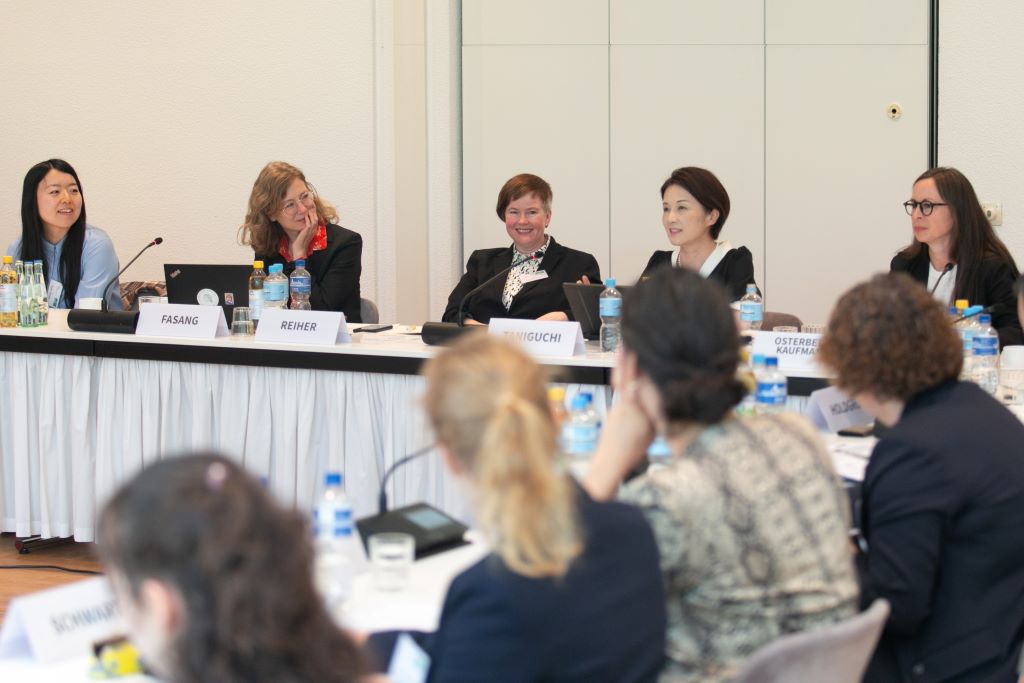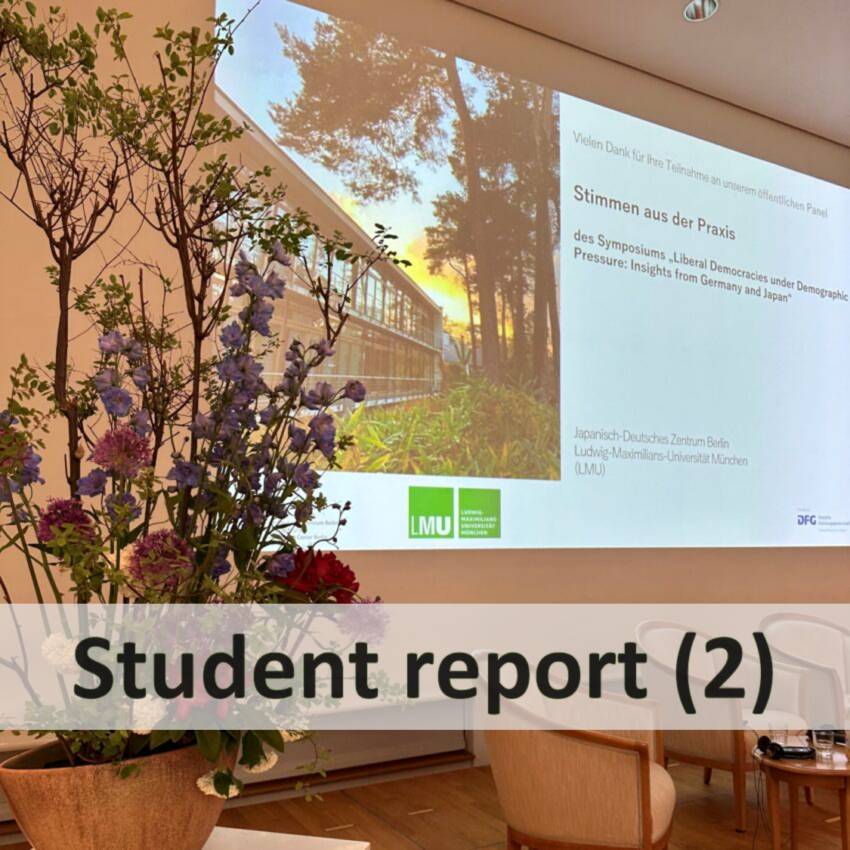From May 14 to 16 the symposium “Liberal Democracies under Demographic Pressure: Insights from Germany and Japan” was held in Berlin and brought together scholars, youth activists, and politicians from Japan and Germany to discuss the influence of demographic change on liberal democracies such as Germany and Japan. It was co-organized by the Japanese German Center Berlin (JDZB) and the research team of the DFG-funded project “Demography and Democracy: How Population Aging Alters Democracy – The Case of Japan” at the Japan Center. We, the members of the research team, thank the Department of Asian Studies for their generous support in form of travel grants for our students to be able to join the symposium in Berlin. This blog post highlights the impressions by one of the students who received a stipend.
Student report on the symposium „Liberal Democracies under Demographic Pressure: Insights from Germany and Japan“(2)
written by Adam Bernatík
The second day of the symposium at the Japanese German Center in Berlin featured the first of three panels at the symposium with the title “Political participation of the young generation”. It featured four presentations touching on the topic from different angles.
Prof. Fasang’s (Humboldt University) presentation focused on political participation at mid-life in Germany. The presentation centered around life courses as a variable and a possible determinant of political participation. A link between more outlier life courses and more political participation was observed as well as an association between lower life security and lower political participation. Furthermore Prof. Fasang explained how different social networks change political interests and hinted, that an early socialization of the young could determine the individual’s political participation.
Prof. Taniguchi’s presentation concerned itself with the political participation of the young in Japan. It combined field research with theory and statistics. Prof. Taniguchi presented her research on how to try and raise political participation and awareness in the young by organizing workshops at a Japanese high school. The workshops offered an alternative to the classical very neutral Japanese political curriculum and showed positive results in raising political awareness among the teens.

Dr. Osterberg-Kaufmann (Humboldt University) presented her research on how the young and highly educated Singaporeans view democracy. The results have raised some important questions regarding the topic of democracy in East Asia namely what exactly democracy means to the average voter in Singapore, Japan and other countries. The Singaporean results have pointed at the importance of governance outcomes (such as security and prosperity) as a key aspect associated with democracy. Furthermore, the view of democracy as a competition and process rather than a way of life has been shown to be more prevalent in the Singaporean case.
Lastly, Shoko Tanaka (Free University Berlin) presented her presentation on the “Generational gaps in ideas and attitudes towards politics in Japan”. Tanaka concentrated on ways the young view politics and how this effects their political participation. The topic of hopelessness and the view that the young cannot change or effect a political outcome was one of the many topics pointed out by the speaker. Furthermore, economic evaluation as a determinant of political participation was also observed.
The presentations were followed by a discussion. The participants raised important questions about the perception of democracy as possible determinant of political participation, as well as about the problem of low political competitiveness in Japan as a determinant of political participation.
The presentations underscored the importance of understanding how the young voters not only view democracy and politics, but also how the voters see themselves in the context of democracy. In the case of Japan future research should consider what exactly democracy is conceived as and by what groups. The attitude of the Japanese voters towards politics has shown areas in which political participation can be increased, such as deepening the understanding of politics and thereby raising confidence in democracy.
One of the platforms for this could then be the Japanese high school where an appropriate political education curriculum could have a positive effect on the political participation of the younger generation. In the case of Germany early socialization could be the way to raise interest in politics. The ways in which an individual could be socialized in order to raise their political participation should certainly be a matter of further research. One of these ways was already suggested by a younger politician in another panel, who periodically organizes non-formal meetings with her younger voters thereby raising some interest in the local community among the young.
Weitere Beiträge:
- Symposium on Liberal Democracies under Demographic Pressure: Insights from Germany and Japan
- Symposium „Liberal Democracies under Demographic Pressure“ – The False Myth of Politics in Aging Democracies: Ein Vortrag von Achim Goerres
- Symposium „Liberal Democracies under Demographic Pressure: Insights from Germany and Japan“ – Panel „Ways forward for super-aging democracies“
